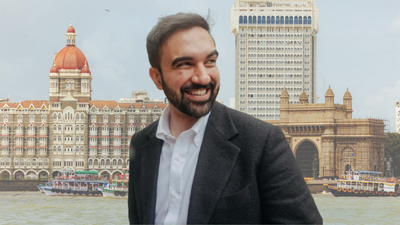ARTICLE AD BOX

Does Mumbai need mayoral system like NYC?
MUMBAI: Can a mayor for Mumbai whip this city back into shape provided the post is reformed to give it teeth?This question comes back to haunt the city from time to time, and now again, with the historic win of Zohran Mamdani, elected mayor of New York City (NYC) on Tuesday.Greater Mumbai, with a much larger population (over 12 million) than NYC, has a mishmash of public agencies running the city which seldom coordinate and often pass the buck, leaving citizens confused.
This has led to overlapping jurisdiction, lack of accountability, inefficient service delivery, wasted resources and delayed infra projects.Among the multiple agencies which sometimes work at cross purposes are the BMC, MMRDA, Mhada, SRA, MMRCL, railways, airport authority and MbPT.Unlike the NYC mayor, the post of Mumbai mayor is largely ceremonial with a term of 2.5 years. The mayor is elected, not by citizens like in NYC, but from among corporators. The party with most corporators gets its candidate elected as mayor. As first citizen, the mayor presides over BMC general body meetings. However, most of the executive and administrative powers are with the municipal commissioner.

On the other hand, the NYC mayor has enormous powers. "Not only do they supervise a staff of over 300,000 people, a budget of over $120 billion, a GDP of $1.3 trillion - that's bigger than 10 other countries.
We're in the top 10 in the world. Considering 1 million kids in our public schools, 10 million people at any given time, 30,000 cops, it's a lot of power," J C Polanco, professor at the University of Mount Saint Vincent in the Bronx, told CBS News.Shiv Sena MP Milind Deora said he always believed Mumbai needs a more empowered mayor with executive powers. "The exact nature of that structure and devolution of powers can be debated, but in principle, I support the idea.
I personally would prefer the idea of a directly elected mayor, but I am open to hearing other views on how we can empower and hold Mumbai's mayor more accountable," Deora said. He added, "This is essential to have someone that can coordinate with multiple agencies in Mumbai, including from the Centre. I believe having a directly elected mayor is a good option as it will raise the profile of the election and senior leaders will aspire to become the city's mayor." Mumbai BJP chief Ameet Satam said the mayor already has powers in BMC as all works and issues are first passed either in the standing committee or any other committee and then come to the general body, which is chaired by the mayor.Shiv Sena (UBT) MLA Aaditya Thackeray said the mayor needs more executive powers and the BMC needs more administrative powers. "Firstly, we should have elections that are free and fair. 1 real person, 1 vote," he said.City Congress chief MP Varsha Gaikwad said, "I believe only a directly elected and empowered mayor can pull us out of this mess. Today, planning, implementation, and monitoring of policies are split across multiple agencies, with almost no coordination. What Mumbai needs is a mayor who functions like the city's CEO, someone who is politically and culturally invested in its future, with the mandate and executive authority to deliver real change.
A mayor who is directly answerable and accountable to the citizens of Mumbai." MNS's Mumbai president Sandeep Deshpande said when more powers were given to mayors in the past through the mayor-in-council system, there was rampant mismanagement and the city suffered.Mumbai did experiment with a powerful mayor 25 years ago. And it turned out to be a failure, forcing the then Shiv Sena-led govt in Maharashtra to scrap what was called the mayor-in-council' system.In 1997, the govt decided to alter the administrative structure of BMC with the centre of power shifting from the municipal chief to the mayor. The idea was mooted by the then CM Manohar Joshi, who was mayor of Mumbai in the 1970s. In 1998, the new system was introduced with Sena's Nandu Satam becoming the first empowered mayor even as then civic chief Girish Gokhale had to play second fiddle. But within weeks, incidents of bungling, dubious decisions and an apathetic attitude towards solving the city's problems came to the fore.
Tussles broke out between the mayor and some mayor-in-council members over lucrative civic contracts. Many civic officials took a back seat and passed on the buck on decisions to mayor-in-council members. In early 1999, when Joshi stepped down as CM and was replaced by Narayan Rane, the latter ordered a review of the system. The system was later scrapped.

 2 hours ago
4
2 hours ago
4








 English (US) ·
English (US) ·